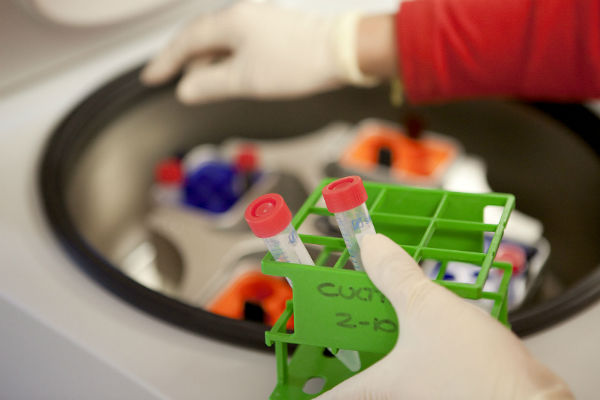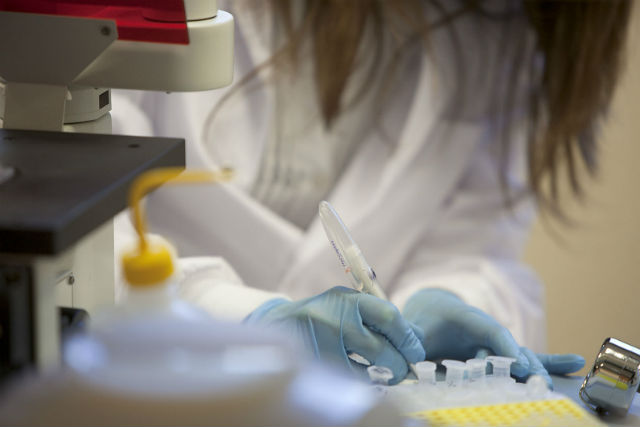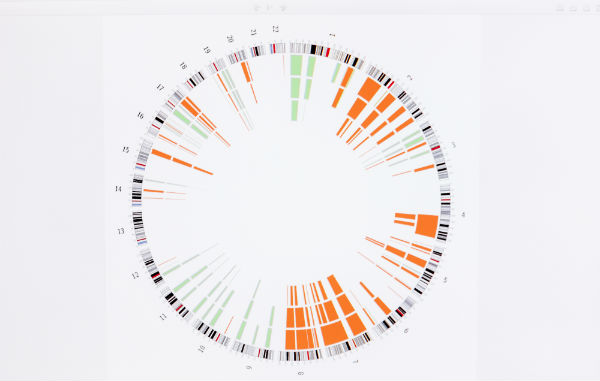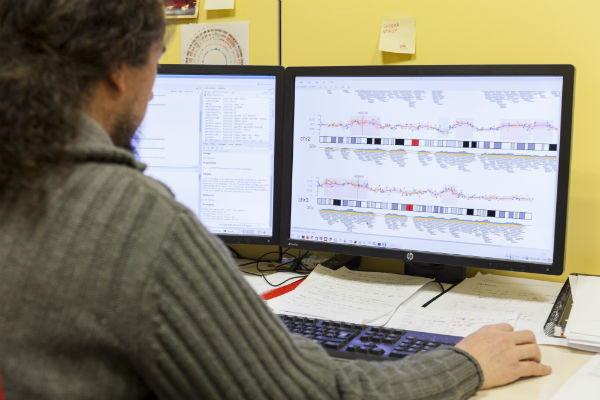Hereditary Cancer Diagnostics
Genetic studies are aimed at determining if patient carries a pathogenic genetic mutation in any of genes analyzed. Mutation carriers for a gene implicated in an hereditary cancer will have a higher susceptibility than the general population to develop a specific cancer type depending on the disease. Susceptibility degree and the cancer type developed are really variable and will depend on the mutated gene.
Due to the hereditary character of the disease and the predisposition to develop cancer the UDGCH-IMPPC understand that genetic counselling by an specialist is required before genetic tests are ordered Once the report has been sent to requesting doctor correct patient management is absolutely essential.
1. When to order a genetic study
- In those cases where a genetic confirmation of a clinical diagnostic in patients fulfilling clinical criteria is required (complete study)
- In those cases where determination of the presence of a previously identified familiar mutation is required (Direct study)
When the genetic diagnostic will be indicated by fulfillment of the criteria and/or by indication of genetic counselling received, the procedure will be the following:
2. Required documents
A.Genetic study order form. We also accept the document of external referral of your center itself, in which the clinical manifestations presented by the patient must be detailed. If your center required it, the signed authorization will also be necessary.
Application for genetic study (Spanish)
In family cases you will also need:
B.Pedigree
In those cases where patient would like to transfer his/her samples to research:
C. Informed consent to use samples to research signed by the patient
Informed consent form (Spanish)
Documents (A & B (if required)) can be sent together with the samples or by email(ELIMINAR). If these were not sent, we will required to the doctor / researcher applying, understanding that the study will not be carried out until both documents will be available.
The applicant physician has the responsibility of obtaining and custoding the informed consent (CI) for the genetic test. This is why we do not require CI to do the test. In any case, we have an informed consent model (link CI Dx) just in case the petitioner do not have it.
3. Required samples
- 8ug of constitutional DNA or 9 ml total blood: in EDTA tube (purple). Each tube should be annotated with sample name or identifier in order to identify the patient to whom it belongs.
- In cases of suspicion of Neurofibromatosis type 1 and Tuberous Sclerosis we recommend sending a second tube of 9 ml of blood in EDTA to be able to perform the study on RNA if necessary. There is also the possibility of sending isolated and frozen lymphocytes, plesae ask the laboratory previously.
4. How to send it
We recommend to send the required documents together with samples, in the case of blood sample in the 24h post-extraction (at room temperature)), by express mail to the following address:
Elisabeth Castellanos Pérez
Genetic Diagnostic Unit
Muntanya Building
Germans Trias i Pujol Research Institute (IGTP)
Campus Can Ruti
Carretera de Can Ruti, Camí de les Escoles s/n
08916 Badalona, Spain
- The blood tubes should be sent protected and in a appropriate box, following the packing instructions P650, as indicated in the ADR (European Agreement concerning the International Carriage of Dangerous Goods by Road o ADR) (6.2I4, ADR2003).
- We recommend contacting with us by email or telephone the day the samples are sent to avoid losses and/or to communicate delivery delays.
You can contact with us by e-mail (link email unitat) or by telephone (+34) 93 554 30 68) for any doubt or problem with the requesting form.
5. Study time
- Complete from blood or constitutional DNA: 2-4 months (depending on used techniques)
- Complete from cell cultured: 4-8 months
- Complete from FPPE samples: 4-6 months
- Direct: 1 month
- MLPA studies: 2 months
In case you need an urgent or prenatal study, it is recommended to contact the laboratory to manage the case.





